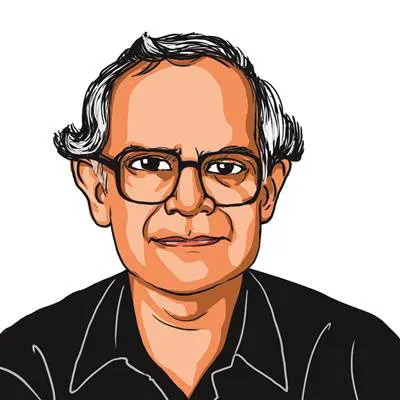Opinion Rajesh Kochhar and the spirit of science
Long before the ethos became polarised and public patience with argument and detail ran dry, he had developed a pithy style that allowed facts to speak for themselves
 There was no trace of activism in his partisanship -- it was spontaneous and devoid of any progressive pretence.
There was no trace of activism in his partisanship -- it was spontaneous and devoid of any progressive pretence. Recently, when a scientist publicly announced his belief in exorcism, Rajesh Kochhar felt that science in India had lost its purpose. But why should scientists alone practice what they preach, I asked him. “Who else will carry the burden of scientific temper?” he replied. It was one of many moments in his final years when he did not conceal his disappointment with his professional community. Troubled though he was, he maintained his faith in science. He remained sceptical of privately-funded research and wary of what he termed “government science”. His experience of the scientific establishment had taught him that the spirit of science was never fully safe in a post-colonial set-up. No wonder he spent a great proportion of his professional energy and time studying colonial history. One of the two books he published last year explores the relatively less researched period of the late 18th century, tracing the roots of English education in India.
Trained in mathematics and physics at Panjab University, Kochhar made his career in astrophysics, serving at the Bengaluru-based Indian Institute of Astrophysics. The field suited his temper and social concerns. The high status enjoyed by astrology in custom and ritual prompted him to study its evolution and cultural positioning. That’s why he felt greatly concerned about the recent debate over the teaching of astrology in a public university. The debate was briskly terminated when IGNOU announced a course in astrology. As an afterthought — laced with humour—Rajesh felt that astrologers themselves might not take kindly to their domain being intruded upon by university teaching and exams. That was typical of Rajesh. What he could not stomach, he turned into a joke. It enabled him to maintain the energy and urge to expose humbug and chicanery — he found plenty in the world of Indian science. His death has diminished the public sphere of science.
Generic labels like “left-liberal” or “activist” did not fit Rajesh Kochhar. Long before the ethos became polarised and public patience with argument and detail ran dry, Rajesh had developed a pithy style that allowed facts to speak for themselves. That was true of conversations as well. At times, after pushing an argument hard, he would suddenly concede the opposite, recalling a fact he had forgotten. You could quarrel with his position without any fear of disturbing the wavelength you enjoyed with him.
Even if he knew that a controversy had its origins in politics, he would engage with it with facts. And for him, facts included the methods used by the claimants. Thus, his challenge to the advocacy of Vedic mathematics went as deep as the work he did for years writing his magnum opus, The Vedic People. Published in 2000, it received worldwide acclaim for its dispassionate analysis of the history, geography and core issues comprising Vedic semiotics. It presented a bold synthesis of evidence drawn from fields as dispersed as astronomy, linguistics and archaeology. While the popular passion to settle the Aryan question did not subside, the book demonstrated where the contours for sensible future research lay. That was precisely the manner in which Rajesh established the role of science: In honing a path of inquiry.
He stayed clear of politics while remaining interested in exploring how caste and religion shape every aspect of life in South Asia, including politics. I often marvelled at his capacity to take sides without sounding oppositional. Thus, when anger broke out in the Sanskrit faculty of the Banaras Hindu University over the appointment of a Muslim in their midst, Rajesh praised the university. There was no trace of activism in his partisanship — it was spontaneous and devoid of any progressive pretence.
Behind each of his pursuits lay years of sustained curiosity. His compromised eyesight only sharpened his persistence. Yet, he was troubled by the diminishing sphere of truth as the sole motive for research. He endured it with his life-long habit of collecting and creating jokes. Years ago, we were together in the Red Fort, watching the sound and light show. Towards the end, it started pouring. Finding an autorickshaw was difficult. Soaked and still waiting, Rajesh started telling jokes about rain. By the time we were inside an auto, I had already heard 20 rain-centric jokes.
This column first appeared in the print edition on March 21, 2022 under the title ‘The spirit of inquiry’. The writer is a teacher and bilingual writer. His forthcoming book is Thank You, Gandhi







